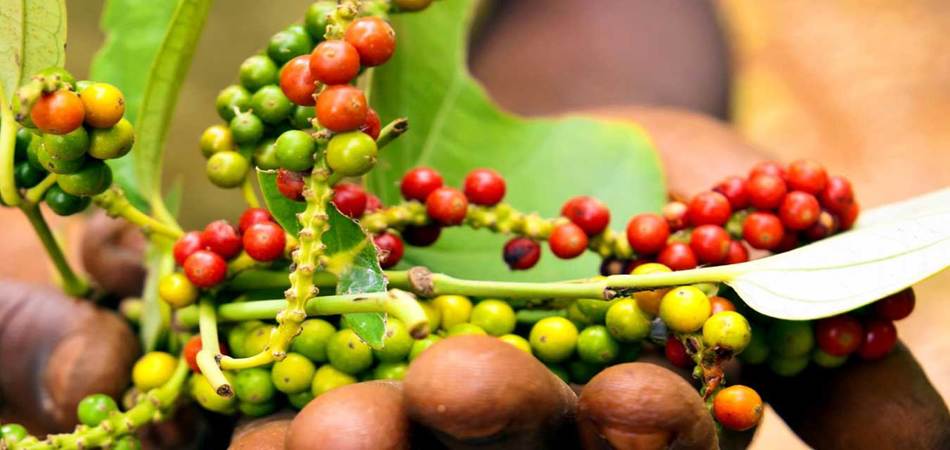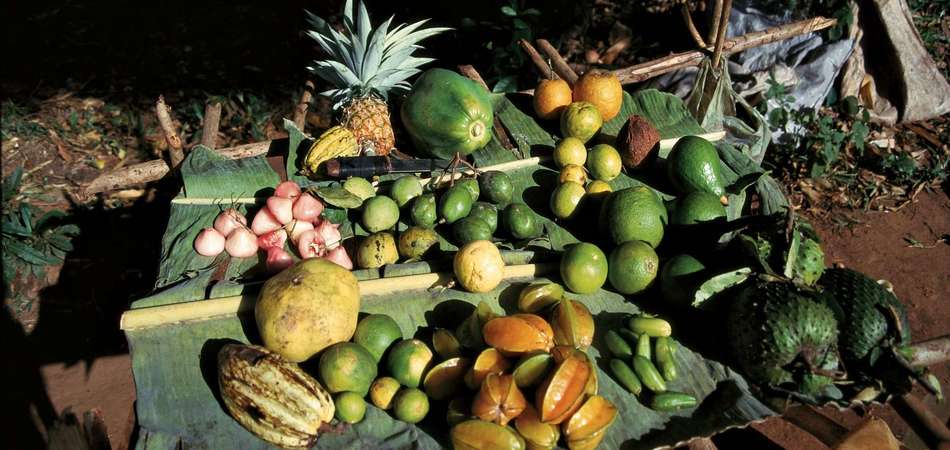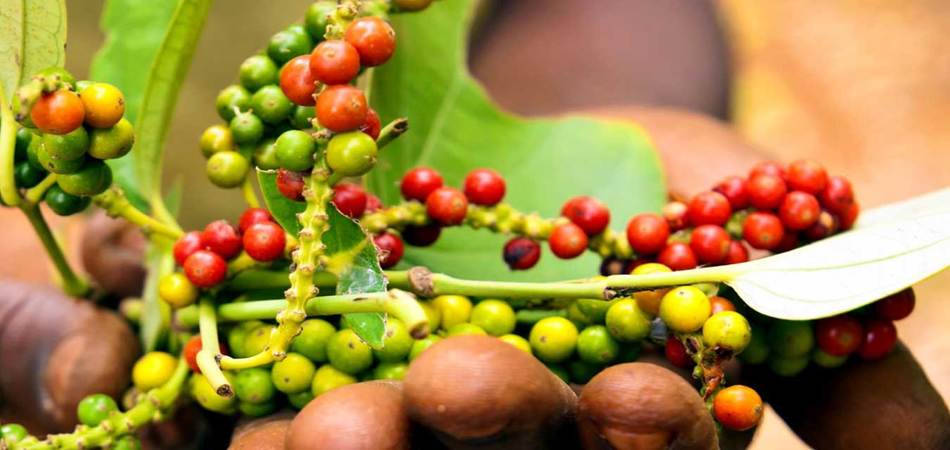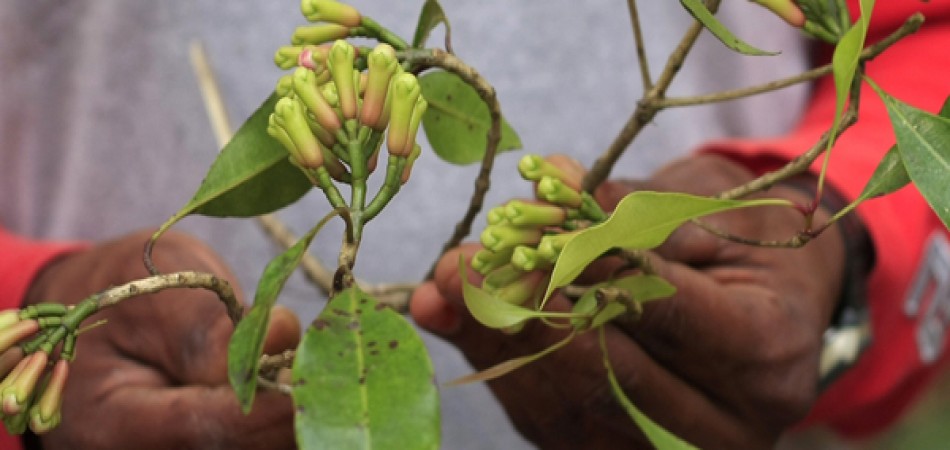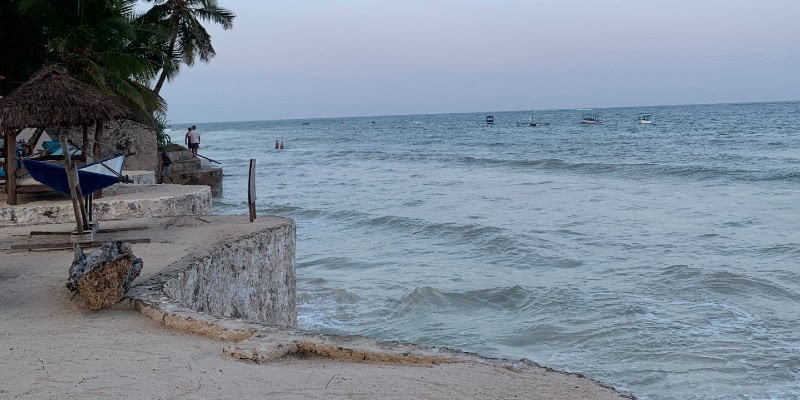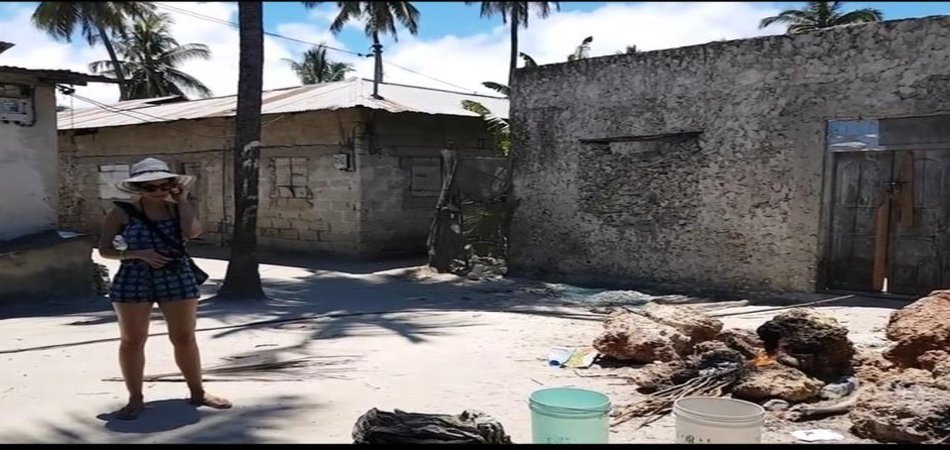Spice Plantation Tour
Tour snapshot
2 Hours
20 persons
Tanzania Zanzibar
Day Trips
Overview
Zanzibar Spice Tour: A Journey Through Aroma, Culture, and Heritage
Zanzibar, a captivating archipelago off the coast of Tanzania, is renowned not only for its idyllic beaches and vibrant cultural mosaic but also for its thriving spice industry. Often referred to as the “Spice Island,” Zanzibar offers visitors a unique opportunity to explore its aromatic treasures through immersive spice tours. These guided experiences invite travelers to delve into the world of spice cultivation, harvesting, and usage—revealing how spices have profoundly shaped Zanzibar’s economy, culture, and identity.
The Role of Spices in Zanzibar’s Heritage
For centuries, Zanzibar has played a central role in the global spice trade. Its warm, humid climate provides the ideal environment for growing a variety of spices such as cloves, nutmeg, cinnamon, and black pepper. Cloves, in particular, have historically dominated the island’s exports, at one point accounting for over 90% of global supply.
But spices in Zanzibar are more than just economic assets. They are deeply embedded in the island’s way of life—infusing its cuisine, healing traditions, and social customs. Local dishes are enhanced with vibrant spices that not only bring flavor but also preserve food in the tropical climate. Many spices also serve medicinal purposes, having been used for generations in traditional remedies. A spice tour thus becomes not just a learning experience but a window into the very soul of Zanzibar.
The Spice Tour Experience
A Spice Tour in Zanzibar is a multi-sensory adventure that brings the island’s history and agriculture to life. These tours typically begin in lush plantations nestled in the island’s interior, where expert guides introduce guests to a wide array of spices growing in their natural environment.
Participants are encouraged to interact with the spices—crushing leaves between fingers to release scents, tasting fresh herbs, and observing the plants up close. The air is often thick with the fragrances of cloves, vanilla, and cinnamon, creating an atmosphere that’s both educational and enchanting.
Guides enrich the experience by sharing stories about each spice’s origin, use, and significance, often with demonstrations of traditional harvesting methods. Guests might witness the skillful collection of clove buds or see how nutmeg is harvested from high branches.
Many tours also include a culinary segment, where visitors learn how to use these spices in Zanzibari dishes. Cooking demonstrations offer a taste of local flavors and techniques, helping tourists understand how spices transform everyday ingredients into something extraordinary. These sessions often leave guests with recipes and memories they can carry home.
Economic Impact of the Spice Industry
Spice cultivation remains a vital pillar of Zanzibar’s economy. It provides employment for thousands of farmers and plays a crucial role in rural community development. Despite challenges such as price fluctuations and competition from artificial flavorings, the industry continues to thrive, thanks in part to tourism and eco-conscious practices.
There’s a growing emphasis on sustainable and organic farming among spice growers, meeting the global demand for natural, ethically produced goods. As interest in eco-tourism rises, spice tours are increasingly valued not just for their educational content but for their contribution to local livelihoods and environmental stewardship.
Government initiatives have also bolstered the industry. Policies aimed at improving infrastructure, enhancing export capabilities, and supporting farmers have helped Zanzibar maintain its reputation as a global spice destination. These efforts ensure that the benefits of spice production reach local communities while preserving the island’s botanical legacy.
Spices as a Cultural Symbol
In Zanzibar, spices are more than agricultural products—they are symbols of cultural fusion and historical depth. The island’s population reflects a blend of African, Arab, Indian, and European influences, each bringing its own traditions and flavors. Spices are central to festivals, rituals, and daily meals, embodying the island’s diverse heritage in every dish and tradition.
A visit to Zanzibar is incomplete without exploring this rich legacy. Through a spice tour, visitors not only witness the island’s agricultural beauty but also gain insight into how something as small as a clove or cardamom pod can hold centuries of history, healing, and heritage.
Discover the essence of Zanzibar—its spices. Journey into its fragrant plantations and walk away with a deeper appreciation for the flavors that have shaped this remarkable island.
Included
Select Dates
{{type.name}}
{{type.desc}}
{{type.display_price}} per person
Guests
Extra prices:
- {{total_price_html}}
- {{pay_now_price_html}}
Guest in maximum
BOOK NOW Book NowImportant information
Itinerary
FAQs about
Spice Plantation Tour
On the Spice Tour Zanzibar, you’ll embark on an unforgettable journey through lush spice plantations. You’ll learn about the cultivation and harvesting of spices like cloves, nutmeg, and cinnamon. Enjoy tastings of unique spices and tropical fruits, and witness live demonstrations on how these spices are integral to local cuisine and traditional medicinal practices.
The Spice Tour Zanzibar generally lasts between 2 to 4 hours. The duration may vary based on the specific itinerary and the number of spice farms included in your tour.
There are no strict age restrictions for the Spice Tour Zanzibar. We do recommend that young children be accompanied by an adult. This enriching experience is suitable for all ages, making it a perfect family outing.
For your Spice Tour Zanzibar, we recommend wearing comfortable, breathable clothing and closed-toe shoes appropriate for walking. Don’t forget essentials like sunscreen, a hat, and a refillable water bottle to keep hydrated while exploring.
To get customer support or make a booking for the Spice Tour Zanzibar, please reach out to our dedicated customer service team via email or phone. Our contact details are conveniently listed on our website, and we’re here to help with any questions or reservations you may have.
Zanzibar, the stunning archipelago off the coast of Tanzania, is famous not just for its pristine beaches but also for its vibrant spice trade. When exploring what to see in Spice Farm Zanzibar, visitors can fully immerse themselves in the island's aromatic wonders. The Spice Tour provides a unique opportunity to discover the cultivation, harvesting, and diverse uses of the spices that have significantly influenced Zanzibar's history and economy. This article highlights the significance of spices in Zanzibar, what to expect on a spice tour, the economic impact of spice farming, and the cultural richness associated with these aromatic treasures.
Often called the "Spice Island," Zanzibar has been a major spice trade hub since the 19th century. Boasting a warm climate and fertile soil, the island is home to an array of spices, including cloves, nutmeg, cinnamon, and black pepper. Cloves, in particular, have been essential to Zanzibar's economy, contributing to over 90% of the world's supply historically. The significance of spices goes beyond economic benefits; they are intricately woven into Zanzibar’s cultural fabric. Spices enhance local cuisine, serve as traditional medicine, and even influence social customs. They play a vital role in preserving food in the tropical climate and are recognized for their medicinal properties, forming an essential part of local traditions. Understanding this rich history enhances the spice tour experience and helps visitors appreciate what to see in Spice Farm Zanzibar. What to Expect on the Spice Tour The Economic Benefits of Spice Cultivation Cultural Significance of Spices From $20.00 Booking Form Check in DD-MM-YYYY Guests
When you embark on a spice tour in Zanzibar, prepare for an immersive journey that engages all your senses. Tours typically commence in lush plantations, where knowledgeable guides introduce visitors to the cultivation and harvesting of spices. Participants are encouraged to touch, smell, and taste various spices directly from the source, making it a hands-on experience. As you wander through verdant fields, the captivating scents of cloves and cinnamon envelop you. Guides share fascinating stories about each spice's history and uses, offering a deeper connection to the island’s past. Visitors will also witness traditional harvesting techniques, like climbing tall trees for nutmeg or carefully plucking clove buds, providing insight into the labor that supports this vital industry. Many spice tours also feature a culinary component, allowing participants to learn how to incorporate spices into local dishes. Cooking demonstrations often showcase traditional Zanzibari recipes, enriching the experience and giving visitors the chance to take home a piece of Zanzibar through their newfound culinary skills.
Spice farming plays a crucial role in Zanzibar's economy, sustaining the livelihoods of thousands of local farmers and workers. Despite facing challenges like fluctuating global prices and competition from synthetic alternatives, spice cultivation remains strong. The economic benefits extend beyond direct employment, contributing to community development through sustainable farming practices and eco-tourism initiatives. There is a growing emphasis on organic farming among spice growers, enhancing the quality
In Zanzibar, spices are more than mere commodities; they carry profound cultural significance. The island’s diverse population, influenced by African, Arab, Indian, and European traditions, has created a rich tapestry of culinary practices where spices play a central role. Each culture incorporates spices into daily life in unique ways, from festive celebrations to everyday cooking. In conclusion, if you're pondering what to see in Spice Farm Zanzibar, prepare for an enlightening experience that celebrates the island's aromatic legacy. From engaging spice tours to exploring the cultural richness behind spice cultivation, your visit will be a memorable journey into the heart of Zanzibar's spice heritage.
Guest reviews
You might also like
Dolphin & Marine Conservation -Make a Difference in one of the most beautiful destinations
Tanzania Zanzibar


